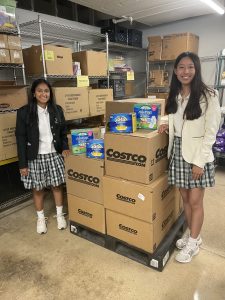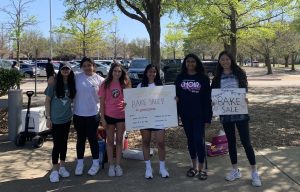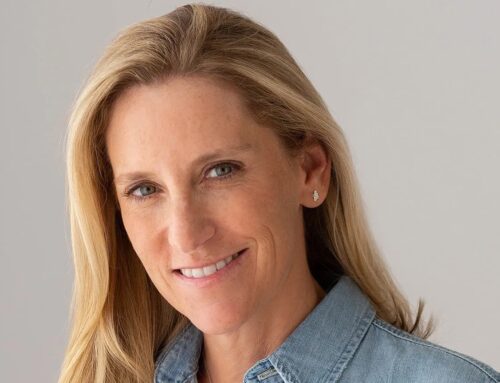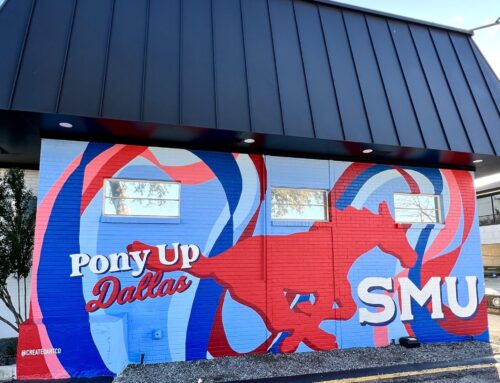
Claire Zhu and Ashley Chemmalakuzhy. Photo courtesy of Ashley Chemmalakuzhy.
Several Hockaday students banded together this semester to fight stigma and raise funds to solve a prominent issue amongst the unhoused: period poverty.
In Texas, one in five women and girls between the age of 12 and 44 fall below the Federal Poverty Line, and 20 percent of national low-income women report missing work, school or other commitments due to lack of access to period supplies, according to the Alliance for Period Supplies.
Period poverty is a health issue, the Alliance says. Those experiencing homelessness are even more likely to have little to no access to period supplies, privacy to change out products, pain relief, laundry and shower sources. This lack of resources can cause toxic shock syndrome from over-use of pads and tampons, or infections from build-up of bacteria. Even reusable feminine hygiene products require regular sanitation, and makeshift pads made of toilet paper or other paper products can cause yeast infections or urinary tract infections. Conditions like PCOS, or polycystic ovary syndrome, and endometriosis are exceedingly common, and cause irregularity, pain, cramping, bloating, and other symptoms that can be curbed with medications, hot water bottles and other supplies that are hard to access for those experiencing homelessness.
Legislative issues such as the tampon tax, which taxes menstrual products as non-essential, and the pink tax, which refers to the tendency for products marketed toward women to cost more, exacerbate these issues, according to Ashley Chemmalakuzhy, executive director of We R Love Foundation, one of the student groups involved in the fundraiser.
After learning about period poverty, two Hockaday students teamed up to find solutions to period poverty in their community. Claire Zhu, a rising junior with Health Occupations Students of America, and Ashley Chemmalakuzhy, a rising senior with We R Love Foundation, teamed up their student organizations and started reaching out to shelters to see how they could help.
Eventually, they found Pamela Culbertson and the rest of the Dallas Life Homeless Recovery Center team, who serve 55 women in need of period products.
The girls ran two bake sales, raising $532, and then started reaching out to companies, individual donors, and feminine hygiene product producers for donations of products and money for supplies.

Their goal was to raise enough for a month of products, but the pair ended up raising $3450, enough for 6 months of products for the women.
In addition to fundraising, the We R Love Foundation made videos for donors and bookmarks with statistics on period poverty to try and increase awareness and end stigma.
“When we were collaborating on this idea, we thought that it was really important to raise awareness so that more people can be discussing this issue, because there is kind of like a stigma around it,” Zhu said. “But it is such an important issue that affects so many women.”
Now that their fundraiser is over, Zhu and Chemmalakuzhy want to encourage others to learn about period poverty, donate products to local shelters in need and support legislative changes to eliminate the pink tax and the tampon tax.






